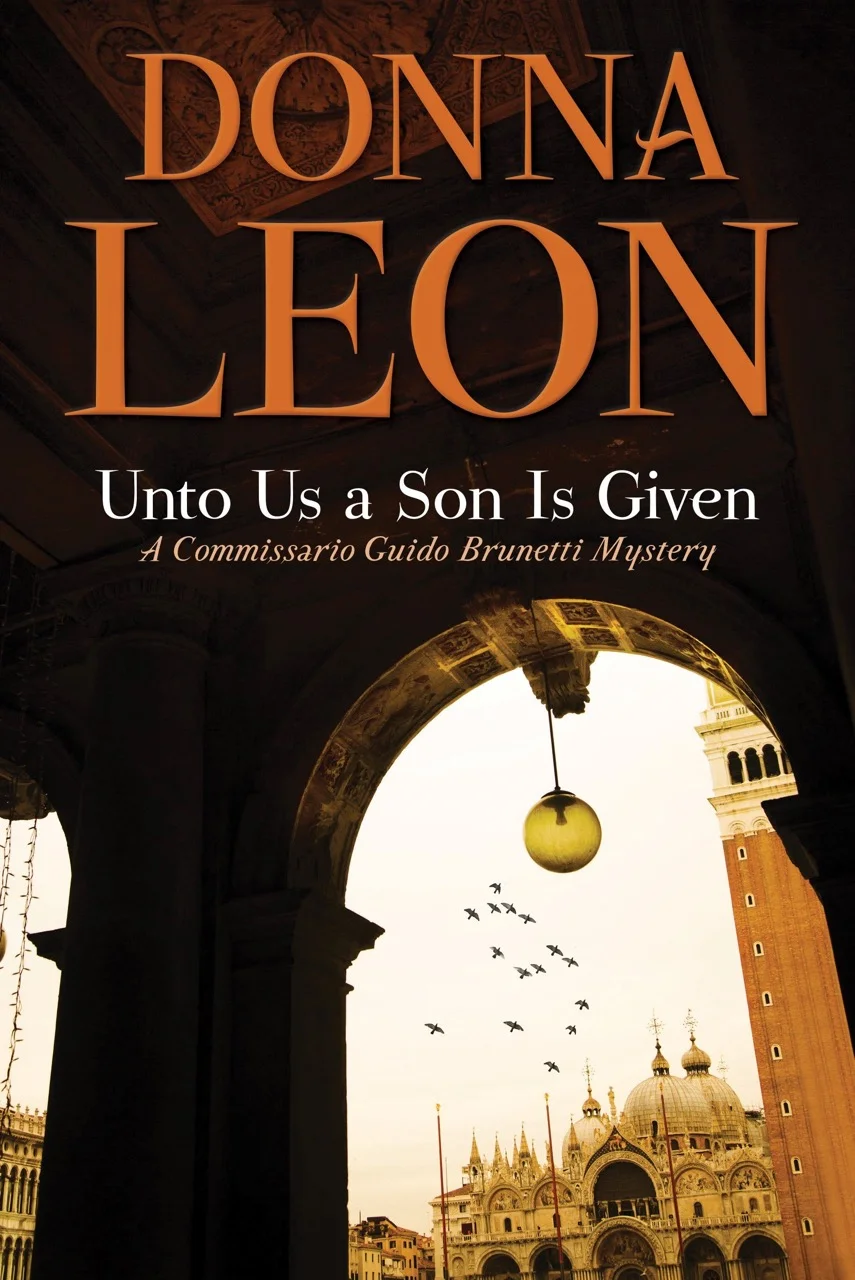It’s a Mystery: “Experience, contrary to common belief, is mostly imagination”
/Unto Us a Son Is Given
By Donna Leon
Atlantic Monthly Press, 2019
A new Donna Leon mystery featuring that quintessential Venetian cop with an unnerving eye for evidence, Commissario Guido Brunetti, is always a treat. Unto Us a Son Is Given is no exception. As the 28th novel in this extraordinary series begins, Brunetti is summoned by his father-in-law Count Orazio Falier, “il Conte,” to the fabled Palazzo Falier on the Grand Canal to investigate a personal matter. He asks Brunetti to check out Attilio Circetti, Marchese di Torrebardo. One of the Conte’s closest friends and Brunetti’s wife Paola’s godfather, 85-year old Gonzalo Rodriguez de Tejada, who is gay, appears totally smitten with Circetti. He plans to legally adopt him—and thus, according to Italian law, that makes Circetti the sole heir to Gonzalo’s considerable estate. The Count, among others, is concerned that Gonzalo is being taken advantage of by the much younger man.
Brunetti is taken aback by his father-in-law’s request. Gonzalo’s private life is really none of his business. He wonders if the reactions would be the same if Gonzalo were heterosexual. But, of course, it’s not quite as simple as that:
Over the years, Il Conte treated him with, first, civility and respect and then with growing affection, and finally with the love the older man extended to his closest friends and to his family. Conte Falier had been generous with his time and, equally important, with his connections to provide Brunetti with information that made straight his professional path through complicated investigations involving politicians and those who sat in positions of power…. All this, and more, Brunetti had sought, and found, under the protective wings of this man’s power…. What was it Paola always said? ‘Love trumps principle?’ Yes. Well, perhaps.
Brunetti agrees to look into the young man’s background. What he finds is troubling in the extreme. While he wrestles with what to do with the information, he must also cope with the fact that Signorina Elettra is on vacation for three weeks. Ostensibly the secretary to their pompous blowhard of a boss, Vice-Questore Guiseppe Patta, she is the rock upon which the office rests. She performs all manner of unofficial duties—some not always legal—for Brunetti, who has confessed quite often that without her the Questura would fall apart.
The three stressful weeks Elettra is gone, quite eventful where crime is concerned, end with added angst for Brunetti when Gonzalo dies suddenly of a cerebral hemorrhage. Gonzalo’s longtime buddy Rudy makes immediate plans to come to Venice to organize a memorial service and he’s bringing a woman, Alberta Dodson. Turns out she’s Gonzalo’s “best friend, ever” and Gonzalo knew her long before Brunetti and the others. Brunetti is more than a little chagrined and finds it puzzling that he’s never heard of her. Unfortunately, the time he gets to spend with her is all too brief before she is found strangled in her hotel room.
Now that he’s got a full-fledged murder on his hands, Brunetti pulls out all the stops. One of the clues that surfaces is an email the victim sent to Gonzalo earlier saying “We are the only ones who know you cannot do this.” Brunetti assumes she was referring to the adoption. But the reason behind its being so firmly off limits, so to speak, is something Brunetti hopes to uncover while delving into Gonzalo’s life. In the end Brunetti lays bare long hidden secrets that ultimately led to murder. As usual where human tragedy is involved, the resolution brings him as much sorrow as satisfaction.
Brunetti’s interaction with his consistently fascinating wife and his rapidly maturing children, contributes much to the pleasure of reading Leon. Just as Brunetti’s choice of what he reads (in this case, Euripides’ The Trojan Women) and his musings therein tells us a lot about his character:
Memory mugged him and he found himself thinking about the Greeks and what animated them. How different were their motives, how absent the thought of material gain. They defended their honour, both men and women; they defended it with violence or cunning or some combination of both, but not for gain…. And here we were, two thousand years later, and greed was the common denominator of human action.
That’s just one of the many insights we get from the wondrous Unto Us a Son Is Given. And as always, Leon portrays Venice, one of the most intriguing cities on earth, with an added dimension all her own.
—Irma Heldman is a veteran publishing executive and book reviewer with a penchant for mysteries. One of her favorite gigs was her magazine column “On the Docket” under the pseudonym O. L. Bailey.

